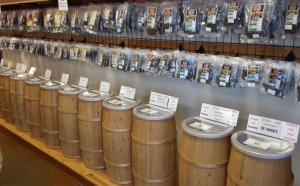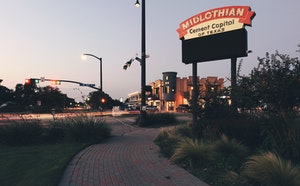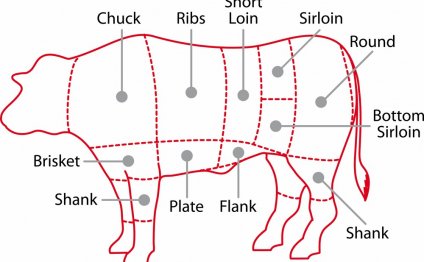
Beef tips Wiki
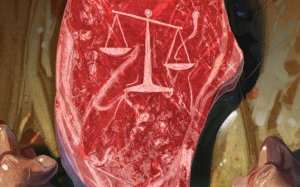 Early in my phone discussion with Bill Koch about a judge battle he’s already been waging over a beef offer gone bad, he made a comment which he usually makes when discussing his many appropriate dustups. “We have something about becoming cheated that boils my blood, ” he said. Then, veering from conversation at hand, he added, “I don’t determine if you understand about my wine crusades . . .”
Early in my phone discussion with Bill Koch about a judge battle he’s already been waging over a beef offer gone bad, he made a comment which he usually makes when discussing his many appropriate dustups. “We have something about becoming cheated that boils my blood, ” he said. Then, veering from conversation at hand, he added, “I don’t determine if you understand about my wine crusades . . .”
Ah, yes, your wine. Inside belated eighties Koch paid $500, 000 for four bottles of a 1787 Bordeaux that had presumably belonged to Thomas Jefferson. A long time later on, in 2005, he discovered that Jefferson had never ever possessed the wine; it absolutely was pointless. The revelation prompted Koch to reexamine all 43, 000 containers inside the collection, in which he unearthed that more than 200 of them had been fakes. Incensed, he sued their wine dealership and led a global promotion to reveal wine forgeries, which cost him some $25 million of their $2 billion fortune.
Bill Koch is, on top of other things, a significantly less popular sibling of America’s most well-known billionaire brothers. Their fraternal twin, David, and his older bro Charles give vast sums of bucks to conservative political factors and run Koch Industries, the second-biggest exclusive organization in the nation, with passions in everything from oil to report towels. Koch Industries ended up being started by their father, Fred, a native of Quanah whom attended Rice and got their begin at the Port Arthur–based Tx Company (later on referred to as Texaco) before moving to Kansas and starting their namesake organization. But where David and Charles have gone all in in the family members company, Bill marketed their stake in 1983, establish his own energy organization, and invested years suing his brothers for presumably spending him not enough for his share. The suits were settled in 2001, but the brothers continue to be estranged.
Koch’s most recent fight is a dispute with HeartBrand Beef, a farm near Harwood that raises an uncommon strain of Japanese cattle known as Akaushi. Six years ago, Koch contracted with HeartBrand to increase several of its cattle by himself land, however the price rapidly soured and recently wound up in courtroom. Whenever I first asked Koch about the dispute, he dismissed it as “a relatively small offer, ” even though the much longer we talked the better it became that his bloodstream nevertheless simmers over it. “They simply want us to cover them a hell of a lot of money, ” Koch said.
The storyline started this season, when Koch chose to boost cattle on his ranch in Colorado. He informed his ranch supervisor to obtain the cattle utilizing the tastiest animal meat, which led him to HeartBrand. If you’re a foodie, you’ve most likely been aware of wagyu meat, a phrase applied to high-grade Japanese animal meat that's most commonly connected with Kobe steaks. Akaushi is actually reasonably limited grade of wagyu, the culmination of more than a hundred several years of careful breeding supervised by the Japanese government.
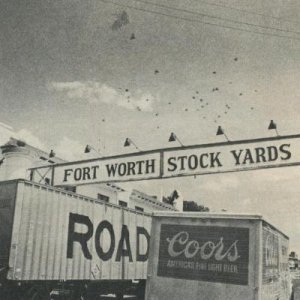 Akaushi cattle were never ever supposed to keep Japan, but because of a loophole in a 1992 U.S.-Japanese trade contract, an American exporter known as Al Woods purchased eight Akaushi cows and three bulls in 1994 and flew them to ny on a specially outfitted 747 jet. (The loophole had been quickly shut, no more Akaushi left Japan.) Right after importing the pets, Woods marketed all of them to a genetic scientist, Antonio Calles, and a team of people, which moved them to Texas to examine the beef’s health advantages. Calles started an ambitious breeding system, making use of surrogate cows to accelerate the process without compromising the cattle’s DNA. In 2006 he sold the herd, which by the period numbered around one thousand, to Ronald Beeman, a rancher who was simply in addition inside meatpacking business. These days, their family’s organization, HeartBrand, is the owner of about four thousand mind of full-blood Akaushi and thousands more which can be 50 percent Akaushi.
Akaushi cattle were never ever supposed to keep Japan, but because of a loophole in a 1992 U.S.-Japanese trade contract, an American exporter known as Al Woods purchased eight Akaushi cows and three bulls in 1994 and flew them to ny on a specially outfitted 747 jet. (The loophole had been quickly shut, no more Akaushi left Japan.) Right after importing the pets, Woods marketed all of them to a genetic scientist, Antonio Calles, and a team of people, which moved them to Texas to examine the beef’s health advantages. Calles started an ambitious breeding system, making use of surrogate cows to accelerate the process without compromising the cattle’s DNA. In 2006 he sold the herd, which by the period numbered around one thousand, to Ronald Beeman, a rancher who was simply in addition inside meatpacking business. These days, their family’s organization, HeartBrand, is the owner of about four thousand mind of full-blood Akaushi and thousands more which can be 50 percent Akaushi.
Beeman’s boy Jordan, who now runs business with his daddy, appears the element of a livestock rancher: high and lanky with a surprise of black tresses. As we drove around his farm one-day in November, he explained that HeartBrand has always dedicated to building the herd, versus selling down as much beef as you possibly can. “It’s a slow, capital-intensive business—like making wine, ” he stated. The Akaushi that roam their land are sleeker than almost all of the cattle you’ve likely seen, because much of the fat is within their meat rather than between their particular skin and muscle, because it's in American types.
HeartBrand slaughters about 160 cattle weekly. That’s up from about 10 six years back, but however it's insufficient to keep up with demand. Therefore the past eight many years the company has actually sold cattle with other ranchers, assured of growing the Akaushi brand name. There are now approximately 14, 000 Akaushi in the us.
To keep up the line’s hereditary purity, HeartBrand requires ranchers to join up any offspring utilizing the United states Akaushi Association, which the Beemans established to track the breed through DNA assessment. The ranchers must signal a contract that prohibits all of them from selling full-blood Akaushi creatures to anyone besides HeartBrand or other AAA members. And even though ranchers can sell the cattle for animal meat, HeartBrand prohibits all of them from advertising the meat as Akaushi. This is certainly, the Beemans state, built to protect the brand, since there’s no guarantee that other ranchers will boost their particular cattle as carefully as they do. (It should be mentioned that HeartBrand markets the meat from its 1000s of half-blood cattle as Akaushi.) Although policy additionally lowers the total amount that ranchers can get at auction.
U.S. beef falls into three grades: choose, choice, and, the highest grade, prime. A carcass produces only so many prime cuts—usually about 3 percent of animal. By comparison, over 90 percent of each and every Akaushi carcass is graded as prime. “Prime meat is actually hard to make, ” said Austin Brown, who has been raising Akaushi on their ranch near Beeville for about seven many years. “These cattle ensure it is naturally.” Akaushi beef is heavily marbled through the entire muscle mass, therefore the beef is especially flavorful and tender. it is healthy also, with more monounsaturated fat than saturated fat and a high percentage of oleic acid, the “good” fat found in essential olive oil. “It’s amazingly large, ” stated Stephen Smith, a professor of animal technology at Tx A&M. Smith has performed two researches of Akaushi beef and it has found that it really increases great cholesterol.
Because Akaushi beef is tasty and healthy, the Beemans notice it as a means to revolutionize the meat business, that has been going right on through a rough patch. Droughts last year and 2012 forced ranchers to reduce their particular herds, operating up meat rates. Cattle futures then struck an all-time high in 2014, which encouraged ranchers to rebuild their particular herds. With meant more cattle visiting marketplace, even while consumers have begun purchasing more chicken and chicken. Consequently, costs fell. By late this past year beef futures were down above 20 % from 2014. Premium products like Akaushi tend to be one way to lower these marketplace fluctuations—and make more money off the people who never ever ended purchasing meat.
At the moment, though, HeartBrand is not creating adequate meat to influence the marketplace. And exactly what it does offer is pricey—a 14-ounce ribeye costs $50 in the event that you order it from HeartBrand’s web site, ten dollars to $20 a lot more than most prime ribeyes. Jordan stated those figures should come down much more folks buy Akaushi beef and economies of scale lower the advanced, but that is nevertheless a country mile off.
To create this work—eventually—HeartBrand has got to keep the Akaushi range pure, this means purely implementing those contracts along with other ranchers. Bill Koch signed one contract this season when he bought 424 cattle from HeartBrand for about $2.4 million. Later on, he purchased 514 even more for another $2.5 million. These days, their herd appears at about 3, 300 head.
Share this Post
Related posts
Reference Book
Whom received? what questions to ask a guy how much marketing manager make how many working days in a month? who developed…
Read MoreWhat is interesting about Texas
The second largest state in the US, Texas - the Lone Star State - has a wealth of natural assets and cultural attractions…
Read More
